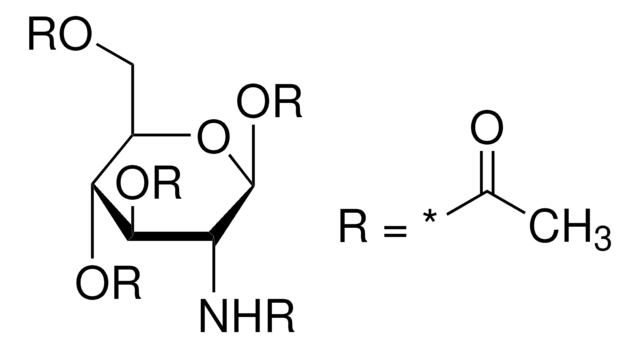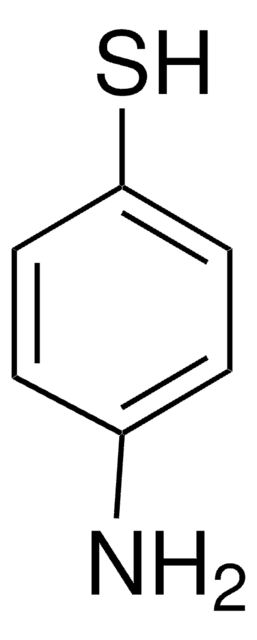B52808
1,2-Di(4-pyridyl)ethylene
97%
Synonym(s):
1,2-Bis(4-pyridyl)ethylene, 4,4′-Vinylenedipyridine
Sign Into View Organizational & Contract Pricing
All Photos(1)
About This Item
Empirical Formula (Hill Notation):
C12H10N2
CAS Number:
Molecular Weight:
182.22
Beilstein:
3865
EC Number:
MDL number:
UNSPSC Code:
12352100
PubChem Substance ID:
NACRES:
NA.22
Recommended Products
Quality Level
Assay
97%
form
crystals
mp
148-152 °C (lit.)
SMILES string
c1cc(ccn1)\C=C\c2ccncc2
InChI
1S/C12H10N2/c1(11-3-7-13-8-4-11)2-12-5-9-14-10-6-12/h1-10H/b2-1+
InChI key
MGFJDEHFNMWYBD-OWOJBTEDSA-N
Looking for similar products? Visit Product Comparison Guide
Related Categories
Application
1,2-Di(4-pyridyl)ethylene is extensively used as a ligand/linker in the synthesis of a variety of metal-organic frameworks(MOFs) and coordination polymers (CPs). It is employed in the synthesis of:
- Expanding and shrinking cadmium-based pillared layer coordination polymers showing selective guest adsorption.
- Dinuclear zinc complex that exhibits photocontrolled fluorescence.
- Platinum-based 3-D tetragonal prisms via multicomponent coordination-driven self-assembly.
Signal Word
Warning
Hazard Statements
Precautionary Statements
Hazard Classifications
Eye Irrit. 2 - Skin Irrit. 2 - STOT SE 3
Target Organs
Respiratory system
Storage Class Code
11 - Combustible Solids
WGK
WGK 3
Flash Point(F)
Not applicable
Flash Point(C)
Not applicable
Personal Protective Equipment
dust mask type N95 (US), Eyeshields, Gloves
Choose from one of the most recent versions:
Already Own This Product?
Find documentation for the products that you have recently purchased in the Document Library.
Isoreticular Homochiral Porous Metal- Organic Structures with Tunable Pore Sizes.
Dybtsev DN, et al.
Inorganic Chemistry, 46(17), 6843-6845 (2007)
Zhiwei Chen et al.
Dalton transactions (Cambridge, England : 2003), 47(17), 6240-6249 (2018-04-25)
Three new luminescent transition coordination polymers, namely, {[Cd(L)(4,4-bpy)]·DMF·H2O}n (1), {[Cd2(L)2(bpe)2]·3DMF·2.5H2O}n (2), and {[Cd(L)(bibp)]·2DMF}n (3), (H2L = 4,4'-[benzene-1,3-diylbis(methanediylsulfanediyl)]dibenzoic acid, 4,4-bpy = 4,4-bipyridine, bpe = 1,2-bis(4-pyridyl)ethylene, and bibp = 4,4'-bis(benzoimidazo-1-ly)biphenyl), were solvothermally synthesized using Cd2+ ions and S-containing dicarboxylate acid in the
Expanding and Shrinking Porous Modulation Based on Pillared-Layer Coordination Polymers Showing Selective Guest Adsorption.
Maji TK, et al.
Angewandte Chemie (International Edition in English), 43(25), 3269-3272 (2004)
Ekaterina Babich et al.
Nanomaterials (Basel, Switzerland), 10(9) (2020-09-20)
The irradiation of silver-to-sodium ion-exchanged glass with 1.06-μm nanosecond laser pulses of mJ-range energy results in the formation of silver nanoparticles under the glass surface. Following chemical removal of ~25-nm glass layer reveals a pattern of nanoparticles capable of surface
Topochemical Photodimerization in the Coordination Polymer [{(CF3CO2)(μ?O2CCH3)Zn}2(μ?bpe)2]n through Single?Crystal to Single?Crystal Transformation .
Toh NL, et al.
Inorganic Chemistry, 117(15), 2277-2281 (2005)
Our team of scientists has experience in all areas of research including Life Science, Material Science, Chemical Synthesis, Chromatography, Analytical and many others.
Contact Technical Service









